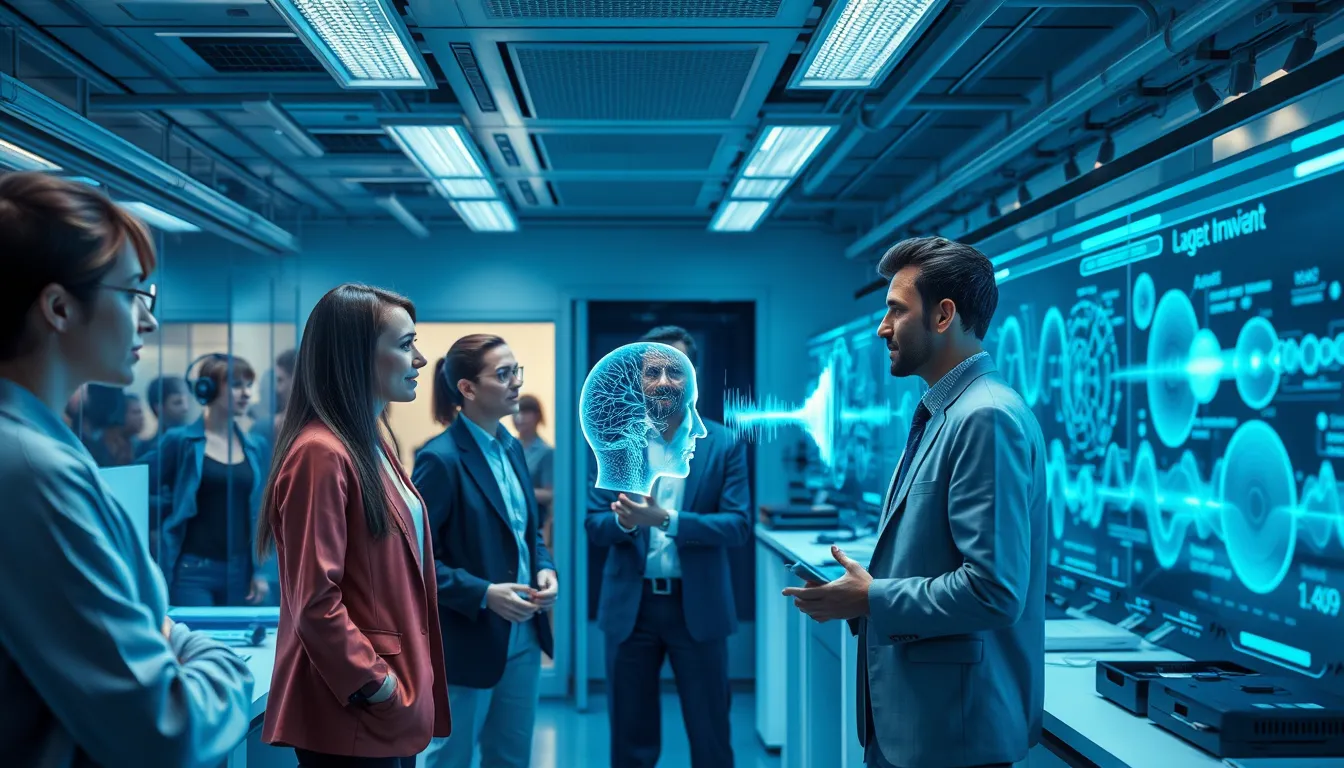Now Reading: Powerful AI in Healthcare Diagnostics: Boosting Patient Care
-
01
Powerful AI in Healthcare Diagnostics: Boosting Patient Care
Powerful AI in Healthcare Diagnostics: Boosting Patient Care

Powerful AI in Healthcare Diagnostics: Boosting Patient Care
Introduction
In today’s rapidly evolving medical landscape, the use of AI in healthcare diagnostics is transforming the way patient care is delivered. From improving diagnostic accuracy to streamlining medical imaging, the integration of AI technologies into healthcare systems is revolutionizing the industry. This article explores how AI in healthcare diagnostics is reshaping patient outcomes, enhancing diagnostic precision, and paving the way for innovative solutions in medical imaging.
Understanding AI in Healthcare Diagnostics
AI in healthcare diagnostics utilizes machine learning algorithms and advanced data analytics to interpret complex medical data. By leveraging this technology, healthcare providers can quickly identify patterns, predict disease outcomes, and support clinical decision making. As the trend in AI medical imaging grows, more hospitals and clinics are investing in these technologies to offer timely and accurate diagnoses.
Key Benefits of AI in Healthcare Diagnostics
There are numerous benefits of implementing AI in healthcare diagnostics, including:
- Improved Diagnostic Accuracy: Advanced algorithms analyze imaging data with precision, reducing the risk of misdiagnosis and enabling more personalized treatment plans.
- Enhanced Disease Prediction: AI tools predict and monitor disease progression, allowing for early intervention and increased patient survival rates.
- Faster Turnaround Time: Automated processes accelerate the analysis of diagnostic images, helping medical personnel make timely decisions.
- Cost Efficiency: By streamlining diagnostic procedures, AI technology helps reduce healthcare costs while maintaining high standards of patient care.
How AI Improves Diagnostic Accuracy
Recent studies indicate that AI in healthcare diagnostics significantly improves diagnostic accuracy. Algorithms trained on vast amounts of medical data can identify subtle indicators of diseases that might be overlooked by human eyes. Below are some key ways these technologies contribute to better outcomes:
- Data-Driven Insights: AI tools are designed to learn from historical data and current patient information. This data-driven approach enables the system to identify trends and anomalies that may indicate underlying health issues.
- Integration with Medical Imaging: AI medical imaging leverages imaging data from sources such as X-rays, MRIs, and CT scans. By analyzing these images, AI systems assist radiologists in detecting early signs of conditions like cancer or neurological disorders.
- Faster and More Reliable Diagnosis: With AI in healthcare diagnostics, physicians can obtain results in a fraction of the time required by traditional methods. This speed not only improves patient care but also reduces the stress associated with prolonged diagnostic procedures.
Implementing AI in Healthcare Practices
Healthcare institutions aiming to integrate AI in healthcare diagnostics should consider the following steps:
- Investment in Technology: Allocating resources towards robust AI platforms is essential. Hospitals should consider partnerships with reputable tech companies such as OpenAI and Microsoft to ensure up-to-date technological solutions.
- Staff Training: Equipping medical personnel with the necessary skills to operate AI systems is vital. Continuous training and development ensure that the team can effectively interpret and act on AI-generated data.
- Ensuring Data Security: With the integration of AI comes the responsibility of protecting patient data. Implementing strict protocols and leveraging secure cloud technologies, such as those provided by industry leaders like Google, helps safeguard sensitive information.
Challenges and Considerations
Despite the remarkable advantages, the journey towards widespread adoption of AI in healthcare diagnostics is not without challenges. Some key considerations include:
- Data Quality and Quantity: The efficiency of AI systems depends heavily on the quality and volume of data available. Inadequate or biased data can lead to incorrect conclusions.
- Regulatory Hurdles: Healthcare is a heavily regulated field. Ensuring that AI tools comply with national and international standards is critical before full-scale deployment.
- Integration with Existing Systems: Incorporating new AI technologies into traditional healthcare IT systems can be complex and requires careful planning.
Future Prospects of AI in Healthcare Diagnostics
The future of AI in healthcare diagnostics is promising. Research and development continue to push the boundaries of what is possible in medical imaging and disease prediction. With ongoing advancements, we may soon see AI systems that not only enhance diagnostic accuracy but also predict potential health crises before they occur. Hospitals across the globe are already witnessing the early benefits of integrating AI into their diagnostic processes, indicating broad acceptance of this technological shift.
Conclusion
AI in healthcare diagnostics represents a major leap forward in improving the efficiency and accuracy of medical evaluations. By harnessing the power of advanced algorithms and machine learning, healthcare providers can offer more precise, timely, and cost-effective care. Although challenges remain in data quality, regulatory compliance, and system integration, the benefits far outweigh these concerns. The continuous evolution of AI technology is set to further transform the field of medical diagnostics, making it an indispensable tool for modern healthcare facilities. Embracing these changes today promises a healthier, more efficient future for patient care.
By embedding AI in healthcare diagnostics, the industry is not only boosting patient outcomes but also setting a new standard for medical innovation and excellence.

























